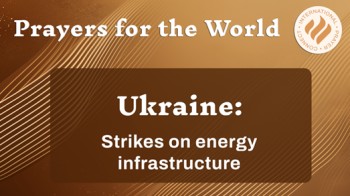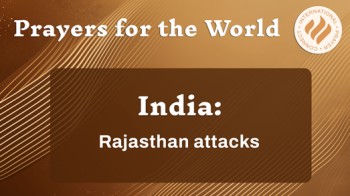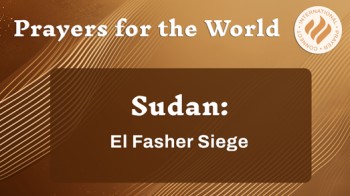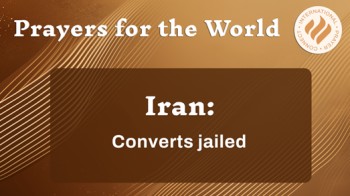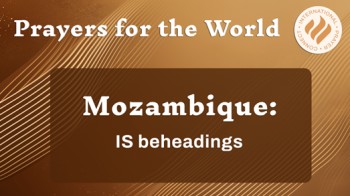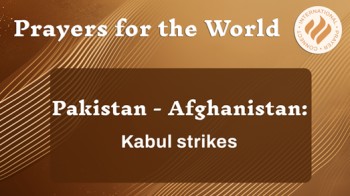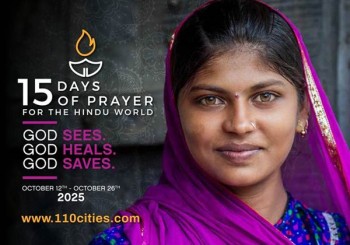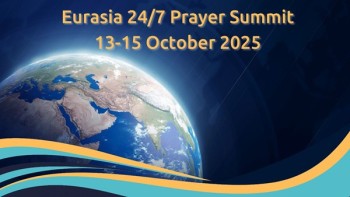
Super User
Lorem ipsum dolor sit amet, consectetur adipisicing elit, sed do eiusmod tempor incididunt ut labore et dolore magna aliqua. Ut enim ad minim veniam, quis nostrud exercitation ullamco laboris nisi ut aliquip ex ea commodo consequat. Duis aute irure dolor in reprehenderit in voluptate velit esse cillum dolore eu fugiat nulla pariatur
Ukraine has endured one of the largest overnight bombardments of the war, as Russian forces launched more than 450 Iranian-made drones and 32 missiles across the country. President Volodymyr Zelenskyy said the strikes targeted vital energy facilities, leaving multiple regions temporarily without power and water. In Kyiv, explosions shook neighbourhoods before dawn, while engineers worked through the night to restore electricity and repair substations damaged by falling debris.
Ukraine’s air defences intercepted the majority of incoming drones, yet even a handful that penetrated proved devastating. Several thermal plants and power distribution centres sustained heavy damage, underscoring how Russia continues to weaponize winter by striking civilian infrastructure. Emergency workers battled fires while local churches opened their doors as shelters and distribution points for food, blankets, and prayer.
International condemnation was swift, with European leaders pledging more air-defence systems and humanitarian support. For millions of Ukrainians facing another harsh winter, the attack renewed both fear and resilience - a determination that darkness will not win.
Prayer Pointers
- Pray: for God’s protection over civilians, workers, and responders. “Whoever dwells in the shelter of the Most High will rest in the shadow of the Almighty.” (Psalm 91:1, NIV)
- Pray: for wisdom among world leaders to pursue justice and lasting peace. “He has shown you… what is good: to act justly, love mercy and walk humbly with your God.” (Micah 6:8, NIV)
- Pray: for the Church to shine as a refuge of hope amid the cold and fear. “The name of the LORD is a fortified tower; the righteous run to it and are safe.” (Proverbs 18:10, NIV)
Prayer for Ukraine
Father, shield the weary, warm the cold, and strengthen those who rebuild by candlelight. Let Your light overcome every shadow, and bring an end to this war. Amen.
More: https://news.sky.com/story/russia-used-more-than-450-drones-in-targeted-attack-on-energy-volodymyr-zelenskyy-says-13447902
Reports from Open Doors and local advocacy groups reveal a sharp rise in persecution against Christians in Rajasthan following recent moves toward an anti-conversion law. The proposed legislation mirrors similar laws in a dozen Indian states, which critics say are often misused to intimidate or criminalise ordinary believers for sharing their faith.
In recent months, house churches have been raided, worship services interrupted, and pastors accused of “forced conversions.” Several believers have been detained without charge. Families face social ostracism for attending prayer meetings or owning Bibles. Christian leaders urge believers to remain calm, continue worshipping, and respond with grace rather than fear.
Despite mounting pressure, the Church in Rajasthan continues to grow. Testimonies of answered prayer, miraculous healings, and community service are inspiring many to seek hope in Christ. Yet concerns remain that legal restrictions could embolden extremists and deepen social divides. Indian Christians are calling on the global body of Christ to intercede—for courage, protection, and wisdom in these challenging days.
Prayer Pointers
- Pray: for believers to stand firm and show Christ’s love amid hostility. “Blessed are those who are persecuted because of righteousness, for theirs is the kingdom of heaven.” (Matthew 5:10, NIV)
- Pray: for justice and integrity among lawmakers and police. “The king’s heart is in the hand of the LORD; he directs it like a watercourse wherever he pleases.” (Proverbs 21:1, NIV)
- Pray: for revival and unity within the Indian Church. “Remember those in prison as if you were together with them.” (Hebrews 13:3, NIV)
Prayer for India
Lord Jesus, strengthen Your people in Rajasthan. Fill them with peace that passes understanding and love that disarms fear. May their witness draw many to You. Amen.
More: https://www.opendoorsuk.org/news/latest-news/india-rajasthan-attacks
El Fasher, the capital of North Darfur, remains under siege as fighting between the Sudanese Armed Forces (SAF) and the Rapid Support Forces (RSF) traps more than 260,000 civilians. Satellite images reveal trenches and sand berms sealing off escape routes. Markets are empty, food warehouses looted, and hospitals overwhelmed with casualties. Humanitarian agencies describe conditions as “catastrophic,” with famine looming and medicine nearly gone.
International negotiators have tried repeatedly to secure a humanitarian corridor, yet ceasefire promises collapse within days. Aid convoys have been attacked or blocked by rival factions. Both sides accuse each other of atrocities, while ordinary families endure starvation, disease, and relentless shelling. Churches have opened their doors as makeshift shelters, offering prayer and limited relief.
Diplomats warn that El Fasher’s fall would devastate hopes for peace nationwide. The African Union and United Nations are pressing for a monitored truce, but progress is slow. Still, testimonies emerge of believers sharing food, caring for the wounded, and reading Psalm 91 aloud amid explosions. Their faith stands as a quiet protest against despair.
Prayer Pointers
- Pray: for protection and humanitarian access to reach every trapped family. “Defend the weak and the fatherless; uphold the cause of the poor and the oppressed.” (Psalm 82:3, NIV)
- Pray: for an end to siege tactics and for peacemakers to prevail. “Blessed are the peacemakers, for they will be called children of God.” (Matthew 5:9, NIV)
- Pray: for the Sudanese Church to shine with courage and compassion. “The LORD is a refuge for the oppressed, a stronghold in times of trouble.” (Psalm 9:9, NIV)
Prayer for Sudan
God of mercy, break the grip of violence and open the way for food and healing. Strengthen Your people to be light in the darkness, and let peace cover Sudan once again. Amen.
An Iranian appeals court has upheld lengthy prison sentences for five Christian converts charged with “propaganda against the Islamic Republic.” The believers—arrested in 2023 for leading house-church meetings and distributing Bibles—each face years behind bars. The verdict, confirmed by advocacy groups and Christian Daily, highlights the ongoing persecution of Persian-speaking Christians who choose to follow Jesus.
The men’s lawyers argued that their gatherings were peaceful expressions of faith, not political activity. Nevertheless, prosecutors insisted that any attempt to spread Christianity constitutes a threat to national security. This reasoning has been used repeatedly to justify raids, interrogations, and detentions. Families have faced intimidation, and some have fled abroad to avoid arrest.
Despite the risk, Iran’s underground Church continues to grow. Believers meet quietly in homes, worship in whispers, and memorize Scripture in case their Bibles are confiscated. “We have learned that Jesus is worth everything,” one convert wrote in a letter smuggled from prison. International human-rights groups urge renewed pressure on Tehran to uphold its commitments to religious freedom under international law.
Prayer Pointers
- Pray: for endurance, courage, and comfort for imprisoned believers and their families. “Remember those in prison as if you were together with them.” (Hebrews 13:3, NIV)
- Pray: for justice and favour in future appeals. “For the LORD is righteous, he loves justice.” (Psalm 11:7, NIV)
- Pray: for revival and unity among Iran’s house churches. “For God gave us a spirit not of fear but of power, love and self-discipline.” (2 Timothy 1:7, NIV)
Prayer for Iran
Father, sustain Your sons and daughters in confinement. Fill their cells with Your presence and use their faith to draw guards, judges, and neighbours to Christ. Amen.
In northern Mozambique’s Cabo Delgado province, more than thirty Christians were brutally beheaded in a recent wave of attacks claimed by Islamic State–linked insurgents. According to CBN News and local church networks, militants stormed several rural villages, destroying homes, burning churches, and killing residents who refused to renounce their faith. Survivors describe scenes of terror as families fled into the forests with nothing but the clothes they wore.
This violence is part of a years-long insurgency that has displaced nearly a million people and left hundreds of churches in ruins. The government has deployed additional troops alongside regional forces, yet attacks continue. Aid agencies say the situation is “beyond humanitarian crisis,” with food shortages and trauma widespread.
Despite unimaginable suffering, the Church remains resilient. Pastors minister in refugee camps, and believers gather under trees to sing and pray. “They can destroy our houses but not our hope,” one survivor told local reporters. International ministries are providing trauma care, Bibles in local languages, and emergency supplies, though insecurity limits access.
Prayer Pointers
- Pray: for comfort and strength for grieving families and survivors. “The God of all comfort… comforts us in all our troubles.” (2 Corinthians 1:3–4, NIV)
- Pray: for protection over remaining villages and wisdom for leaders combating terror. “Rescue me, LORD, from evildoers; protect me from the violent.” (Psalm 140:1, NIV)
- Pray: that God’s love would overcome hatred, bringing healing and forgiveness. “Do not be overcome by evil, but overcome evil with good.” (Romans 12:21, NIV)
Prayer for Mozambique
Lord, shelter the afflicted and confound the plans of the wicked. Strengthen Your Church to bring hope, forgiveness, and peace where fear has reigned. Let Your light pierce the darkness. Amen.
More: https://cbn.com/news/world/30-christians-beheaded-mozambique-radical-islamic-terrorism-runs-rampant-parts-africa
Multiple explosions shook Kabul this week amid reports of suspected Pakistani airstrikes targeting positions of the Tehreek-e-Taliban Pakistan (TTP). Regional outlets and Afghan officials said the strikes hit residential areas near the capital, with unconfirmed claims that TTP leader Noor Wali Mehsud may have been killed. Both governments have traded accusations for months, as Pakistan insists militant sanctuaries operate from Afghan soil while the Taliban authorities deny complicity.
The attack marks a dangerous escalation between two nuclear-armed neighbours already struggling with instability, economic hardship, and displaced populations along their porous border. Analysts warn that retaliation could trigger a new cycle of violence, complicating humanitarian operations and further endangering civilians. Local reports indicate families fleeing affected districts as fears of reprisal grow.
Christian ministries operating quietly in both countries are calling for prayer and protection for vulnerable communities. The small but courageous Afghan and Pakistani churches—many meeting in homes—remain steadfast, ministering amid insecurity. “Even when bombs fall, we cling to Jesus’ peace,” one believer wrote in an encrypted message shared with partners abroad.
Prayer Pointers
- Pray: for restraint and diplomacy between Islamabad and Kabul to prevail. “Turn from evil and do good; seek peace and pursue it.” (Psalm 34:14, NIV)
- Pray: for protection of civilians and wisdom for leaders seeking stability. “Peacemakers who sow in peace reap a harvest of righteousness.” (James 3:18, NIV)
- Pray: for believers in both nations to be salt and light amid danger. “You are the light of the world… let your light shine before others.” (Matthew 5:14,16, NIV)
- Prayer for Pakistan and Afghanistan
Prince of Peace, restrain violence and protect the innocent. Strengthen Your people to serve bravely, love boldly, and carry Your gospel of reconciliation where fear reigns. Amen.
More: https://www.presstv.ir/Detail/2025/10/10/756614/Suspected-Pakistani-airstrikes-hit-Kabul,-TTP-chief-Noor-Wali-Mehsud-feared-dead
Join Us for 15 Days of Prayer for the Hindu World (12–26 October 2025)
“Declare His glory among the nations, His wonders among all peoples.” (Psalm 96:3)
We warmly invite you, your family, and your church to join International Prayer Connect for 15 Days of Prayer for the Hindu World, from 12–26 October 2025. Together, let’s stand in prayer for over 1.2 billion Hindus, many of whom have never heard the Good News of Jesus Christ.
This special prayer initiative surrounds Diwali, the Hindu “Festival of Lights”- a time when hearts are open to spiritual conversations and new beginnings. As Hindus celebrate light triumphing over darkness, we believe this is a prophetic moment to pray that many will discover Jesus, the true Light of the World (John 8:12).
We’re excited to announce that adult and children’s prayer guides have been prepared in over 30 languages and are available at 110cities.com. These guides feature powerful testimonies - like miraculous healings that led entire villages to Christ - alongside fascinating facts, cultural insights, and profiles of cities where significant unreached Hindu people groups live. Each day offers focused prayer points and links for further exploration.

This prayer journey includes, on 20th October, a Global Day of Prayer, uniting believers worldwide to intercede for breakthrough among Hindu communities - especially across India.
Watch Dr Jason Hubbard’s personal invitation video!
 “Ask of Me, and I will give You the nations for Your inheritance.” (Psalm 2:8)
“Ask of Me, and I will give You the nations for Your inheritance.” (Psalm 2:8)
Whether you’re a church leader, a family, a youth group, or an individual intercessor, your prayers can open spiritual doors and transform destinies.
Let’s raise our voices together so that every Hindu person may one day hear and respond to the hope found in Jesus Christ.
Join us - and let’s pray together for the Hindu world!
More info: https://110cities.com/hinduism/
LIVE THIS WEEKEND - The Dream of a Generation!
This weekend, a historic and generational gathering is taking place on the National Mall in Washington D.C and we want you to join us online.
COMMUNION AMERICA: 50 TENTS, 50 STATES, ONE TABLE.
From October 10-12, believers from across the nation will come together to worship, pray, and lift high the name of Jesus over America. This is a sacred call to the Table of the Lord, a moment to plead the blood of Jesus, cry out for an end to the bloodshed, and contend for a sweeping revival in our land.
There is something powerful that happens when a generation cries out to God for a nation, and we want you to be part of it. Throughout this weekend, the Mall will be filled with the sound of worship and intercession. 50 tents representing every state, day and night, united in one heart and one cry: Jesus, heal our nation.
This is not just another event. It’s an invitation to encounter the presence of God and stand together for His purposes in our generation.
Location: Online - Download the GODTV+ app or join us at www.watch.god.tv
Friday 10th October - 11:45pm UK (BST) 6:45pm US (EST)
Saturday 11th October - 7:15pm UK (BST) 2:15pm US (EST)
Sunday 12th October - 2pm UK (BST) 9am US (EST)
Admission: Free and open to all
Let’s gather as one family, one nation, and one Church under the banner of Jesus Christ.
With faith and expectation
By Tom Victor
September 5th marked the U.S. and Canada Premiere of the new movie - Light of the World.
It is a beautifully hand-drawn animated film that follows Jesus’ life through the eyes of young John, powerfully sharing the Gospel message of love, hope, and salvation with children and families worldwide.
It is scheduled for release in 30 more nations before the end of 2025. The film will be translated into 500+ languages.
The film’s makers' vision is for the movie to nurture new and existing believers through free Gospel discipleship materials. A Gospel invitation and QR code are displayed on screen at the end of the film to encourage people to respond.
The IPC and 2BC families have been praying for the success of this remarkable film and for many children and adults across the world to be reached with its Gospel message.
Who is behind Light of the World?
The Salvation Poem Project has created Light of the World. Perhaps you’ve heard of them as the Salvation Poem is at the end of every Superbook episode and is available in almost 100 languages.
2BC and Shine!
 ‘Rise, shine, for your light has come, and the glory of the Lord rises upon you.’ (Isaiah 60:1)
‘Rise, shine, for your light has come, and the glory of the Lord rises upon you.’ (Isaiah 60:1)
On two occasions now, children from 20 nations have taken turns leading 24 hours of “on-line” prayer in our 2BC Prayer Room. Many others joined them “off-line” as well. They were part of the newly established Shine Project.
The vision of Shine! is to be praying for children (and adults) to know Jesus, boldly share His love, and for the Light of the World movie to impact families and nations with the Gospel. Watch the Trailer!
These Shine 24 hour events have been so successful that due to popular demand, we are holding a third one one! -
Shine! – 24 Hours of Prayer for the Light of the World’
October 14, 2025
Starts: 00:00 EST | 06:00 CEST | 12:00HRS SGT
Shine! is a 24-hour global celebration of Jesus, hosted by children, families, churches and ministries across every continent. We’re lifting up the name of Jesus and praying for the success of the upcoming “Light of the World” movie – a powerful Gospel film being translated into hundreds of languages.
Continuous online Zoom sessions and offline local gatherings will blend worship, intercession, creativity and child-led passion. Children will pray boldly, worship joyfully, and share Jesus faithfully!
You can join an hour online or lead your own gathering at home or church using our free Shine! Small Group Pack. Let’s raise a wave of worship and intercession that covers the earth - through the voices of the next generation!
Why is our 2BC Family partnering with this movie?
2BC has three core values. 1) Children Hearing the Voice of their Heavenly Father; 2) Children Knowing their Identity in Christ; 3) Children Empowered by God’s Spirit to Share His Love with Others. Light of the World is a powerful resource to help children – both the little ones and the older ones - become 2BC Champions as they discover their identity and share the message of God’s love with others in their neighborhood and around the world.
The Shine Project has created several free resources to help children Shine! as 2BC Champions in support of this movie, including a Prayer Guide, B.L.E.S.S. Cards, God’s Favorite and Shine Songs. There are some exclusive Light of the World resources launching this week too!
You can find them all at:https://www.2bc.world/shine/

Is the Shine Project for me?
You can only qualify for the Shine Project if:
- You are a child;
- You love children;
- You were a child at some time in your life.
If any of these apply, Light of the World and the Shine Project is for You!!! Check it out!
Here’s a music video by Shane and Shane with movie segments that can help you decide:
More info, Resources and Sign-up
www.2bc.world/shine
2BC: Every Child - Everywhere - On Mission - With God!
Join the Eurasia 24/7 Prayer Summit – Called to the Wall!
13-15 October 2025 (Optional Prayer Journey on 16th) - Island of Malta
Across Europe and the Middle East, there’s a rising sense of urgency and hope. The spiritual heritage of these lands runs deep, and many believe we are standing on the threshold of a great awakening.
In this pivotal hour, Jericho Walls International Prayer Network and IPC warmly invite you to the Eurasia 24/7 Prayer Summit, taking place 13–15 October 2025 on the beautiful island of Malta.
The summit’s theme, “Called to the Wall,” echoes the powerful words of Isaiah 62:6-7:
“I have set watchmen on your walls, O Jerusalem; they shall never hold their peace day or night. You who make mention of the Lord, do not keep silent, and give Him no rest till He establishes and till He makes Jerusalem a praise in the earth.”
God is raising up watchmen—men and women who will not rest until Heaven touches Earth in Western Europe, Eastern Europe, and the Middle East. The Eurasia Summit is a gathering for those who carry a burden for prayer for revival in these regions. Leaders from every nation in this vast and diverse part of the world will gather in Malta to celebrate what God is doing and contend for what is yet to come.
This summit is part of a global movement, one of five strategic gatherings around the world, all carrying the same vision: to see 24/7 prayer established in every nation on earth by 2033.
The mission is clear—to encourage, equip, and empower leaders to build unceasing prayer in local churches, cities, and nations.
Whether you are a pastor, prayer leader, intercessor, or simply someone burning with a vision to see God move in your nation, this summit is for you. Let’s unite across borders, languages, and cultures to lift up one sound, one cry, one relentless prayer: “God, have Your way in our nations!”
Watch the video: https://youtu.be/C1_y6nitYfg
Join us in Malta this October. Let’s answer the call to the wall—together!
